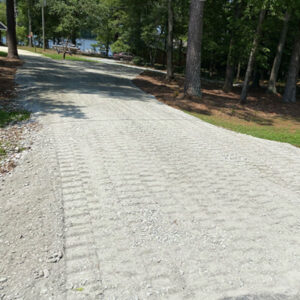If you are planning to build a driveway on your property, you must follow certain guidelines for the construction. For example, you must ensure that the concrete pours in the proper area. To ensure the accuracy of the pour, you must use concrete forms. These forms should be secured properly and should be straight. In addition, the base of concrete should be about four to 10 inches thick, depending on the conditions of the soil. You can rent a plate compactor to compile the concrete.

If you are planning to build a driveway for your home, it is important to choose the right materials. For the best results, Visit Website to choose materials that are durable and resistant to inclement weather. While concrete can easily wear away over time, asphalt won’t easily crack or fade. However, it will need regular maintenance to maintain its good looks. In addition, concrete driveways are thicker than asphalt, which makes them a better choice for driveway construction. However, beware of excessive cement content, which can make concrete surfaces weak and susceptible to cracking.
A good foundation is crucial for a durable driveway. To achieve this, the subgrade must be level and free from organic material. In addition, the material should also allow for proper compaction. Crushed gravel is an excellent base material because it compacts well and helps to drain water from underneath. Besides being a sturdy base material, crushed gravel also prevents ice from forming and helps keep the asphalt surface from cracking.
Another excellent material for driveway construction is molded concrete blocks. These driveways are durable and attractive and are particularly suitable for exterior applications. In addition, they can be laid in various patterns, including brick and tile. Resin driveways are also a good choice for durability and attractiveness. These can be laid directly on the surface of the tarmac or over an existing driveway.
Tarmac driveways have many advantages over other driveway materials. They are easy to install and can be laid straightaway. They also require minimal maintenance. Tarmac driveways are also very durable and have a long lifespan. If you plan on having a tarmac driveway installed for your home, choose a contractor that has experience with the material and is familiar with the specific requirements of tarmac construction. You should also be sure to specify the construction specifications in your contract.
In addition, all driveway construction must meet standards for safety for pedestrians. For example, driveways with curbs must meet the requirements of GDOT Special Details A1 through A4. Regardless of whether the driveway is for an entrance or an exit, the curb must be accessible to handicapped people. Furthermore, if you plan to construct driveways for multi-family homes, you should also adhere to the design standards of the multi-family complex and incorporate them into your design.
The cost of driveway construction depends on a number of factors, including the type of driveway and traffic use. The material used to lay the driveway is also a factor, with the standard thickness of four inches being recommended. However, if you plan to drive heavy vehicles on the driveway, you should opt for a five-inch base for greater strength. A thickness of eight to twelve inches will also increase the durability of your driveway.
Other factors that affect the cost of driveway construction include mobilization charges and the location of the project. In addition to labor costs, there are other expenses, such as fuel surcharges. Whether or not your driveway is going to be durable also depends on weather conditions and extreme temperatures. However, you can expect to spend up to $40 per square foot for a new driveway. For those who have a smaller budget, a blacktop driveway may be a more affordable option.
The cost of a new driveway may be significantly higher if you have to remove a large tree. It can cost as much as $750 per tree, but larger trees are more expensive than smaller ones. Additionally, tree stumps can get in the way of the asphalt. For this reason, stump removal and grinding can cost you anywhere from $20 to $326 per inch. In addition, some companies charge by the size of the stump, so you may have to pay a fee for each inch of diameter.
The type of material used for the driveway will also affect the cost of driveway construction. Some materials are better suited for a colder climate than others. Some of these materials can withstand heavy snow and freezing conditions, while others may not be able to handle heavy traffic. Some of these materials are also more expensive than others.